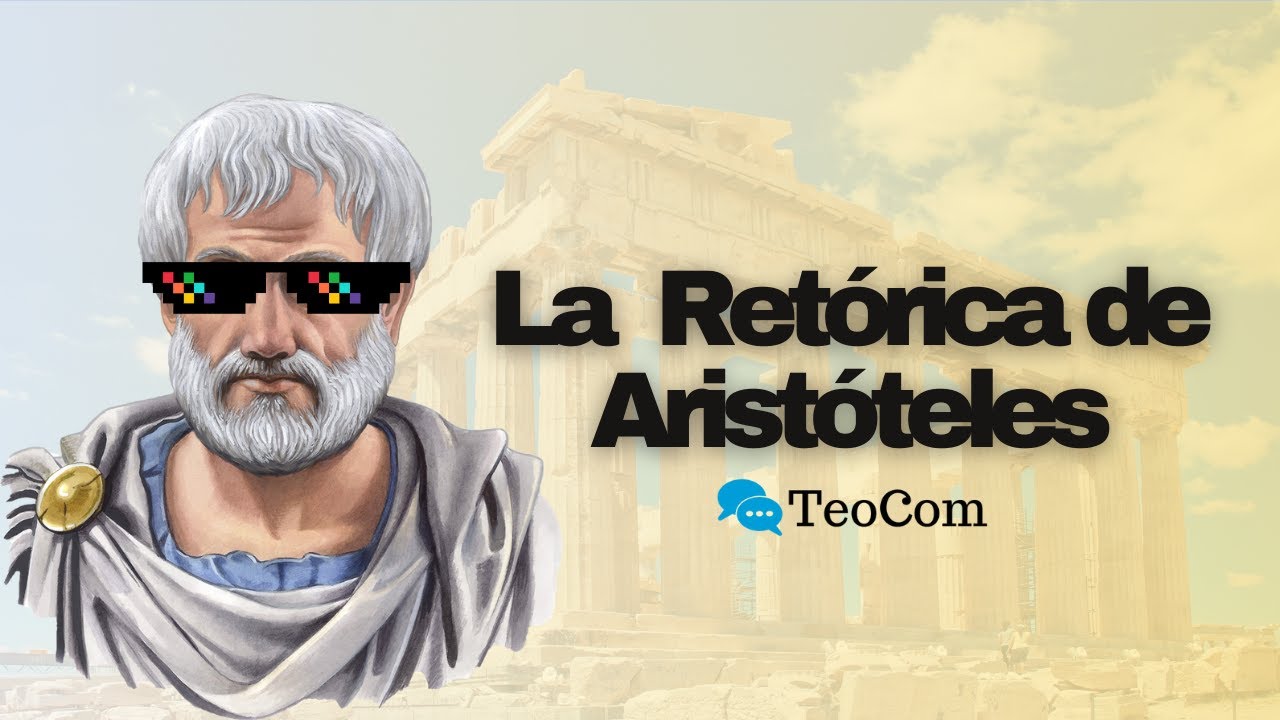RETÓRICA - Aristóteles (Resumen del Libro): Filosofía para PERSUADIR y CONVENCER con EXCELENCIA
Summary
Please replace the link and try again.
Takeaways
- 😀 Rhetoric is a powerful tool that can influence people's beliefs, but it can be misused by those with bad intentions.
- 😀 Aristotle considered rhetoric a valuable tool, but he acknowledged it could be used for both virtuous and malicious purposes.
- 😀 The key to effective rhetoric lies in its ethical use—focusing on truth and good actions rather than manipulation for selfish gain.
- 😀 A strong rhetorical message should be well-prepared, logically sound, and morally responsible to be persuasive.
- 😀 Emotions (pathos) play a crucial role in persuasion, and an orator can strategically use them to influence the audience's reaction.
- 😀 The emotional state of the audience can significantly affect their judgment and response, as seen in examples of judicial decisions influenced by the mood of the judge.
- 😀 Rhetoric should not be used to deceive; instead, it should be based on sound arguments and justifications that can be reviewed and analyzed.
- 😀 Aristotle emphasized the importance of ethos (credibility) and phronesis (practical wisdom) in delivering a persuasive message that benefits the common good.
- 😀 The orator must consider the emotional triggers relevant to the topic at hand to effectively engage and influence the audience’s beliefs or decisions.
- 😀 The ultimate purpose of rhetoric, when used correctly, is to promote the truth and common good, not to win arguments by any means necessary.
- 😀 The ethical use of rhetoric requires a commitment to honesty and transparency, aligning the speaker’s intentions with the moral values of society.
Q & A
What is the main focus of the transcript?
-The main focus of the transcript is on Aristotle's theory of rhetoric, particularly how it can be used for persuasion while emphasizing the ethical considerations and potential dangers of its misuse.
What are the three key components of persuasion discussed in the transcript?
-The three key components discussed are ethos (credibility), pathos (emotional appeal), and logos (logical reasoning). These are fundamental elements of Aristotle's rhetorical framework.
How does Aristotle view the relationship between rhetoric and ethics?
-Aristotle sees rhetoric as a tool that can be used for both noble and unethical purposes. While it can help promote truth and justice, it can also be misused by those with bad intentions, which is why it must be practiced ethically.
What is the role of ethos in persuasion according to the script?
-Ethos refers to the credibility and moral character of the speaker. It is crucial because the audience tends to trust and be persuaded by those who are seen as virtuous and reliable.
What does pathos refer to, and why is it important in rhetoric?
-Pathos refers to the emotional appeal made to the audience. It is important because emotions can influence people's judgments and decision-making, making it an effective tool in persuading an audience.
How does the emotional state of a judge impact their decision-making, according to the transcript?
-The emotional state of a judge can significantly affect their judgment. For example, if the judge is in a good mood, they may be more lenient, whereas if they are upset, they may issue a harsher verdict.
What is the main concern with using rhetoric for manipulative purposes?
-The main concern is that rhetoric can be used to spread falsehoods or unethical ideas, potentially leading to the manipulation of people's beliefs and actions for selfish or harmful reasons.
How does Aristotle's approach to rhetoric differ from simple argumentation?
-Aristotle's approach emphasizes not just logical reasoning (logos) but also the ethical and emotional elements (ethos and pathos) of persuasion. Rhetoric is seen as a more holistic tool, not just a way to win an argument but to influence beliefs and behaviors responsibly.
What is the significance of 'pázos' in the context of rhetoric?
-'Pázos' refers to emotions or states of mind, and it plays a crucial role in rhetoric by helping the speaker intensify, create, or diminish the emotions of the audience to achieve persuasive effect.
What does the speaker imply about the ethical use of rhetoric in modern times?
-The speaker implies that, while rhetoric is an essential tool, it is often misused in modern times for unethical purposes. Therefore, it is crucial to use rhetoric with integrity, focusing on the pursuit of truth and the common good rather than self-serving or manipulative goals.
Outlines

This section is available to paid users only. Please upgrade to access this part.
Upgrade NowMindmap

This section is available to paid users only. Please upgrade to access this part.
Upgrade NowKeywords

This section is available to paid users only. Please upgrade to access this part.
Upgrade NowHighlights

This section is available to paid users only. Please upgrade to access this part.
Upgrade NowTranscripts

This section is available to paid users only. Please upgrade to access this part.
Upgrade NowBrowse More Related Video

La RETÓRICA DE ARISTÓTELES

5 Figuras Retóricas muy utilizadas en mensajes publicitarios

La RETÓRICA: el arte de persuadir 🍉 qué dijo Aristóteles: diferencia Retórica/ Dialéctica

Aristóteles - Filosofía - Educatina

FILOSOFÍA ANTIGUA (Desde los presocráticos): Periodos/Características/Representantes

La felicidad en Aristóteles (Ética y deontología profesional) [UNLaM]

¿Qué son las FALACIAS y cómo identificarlas? Tipos de falacias y ejemplos
5.0 / 5 (0 votes)